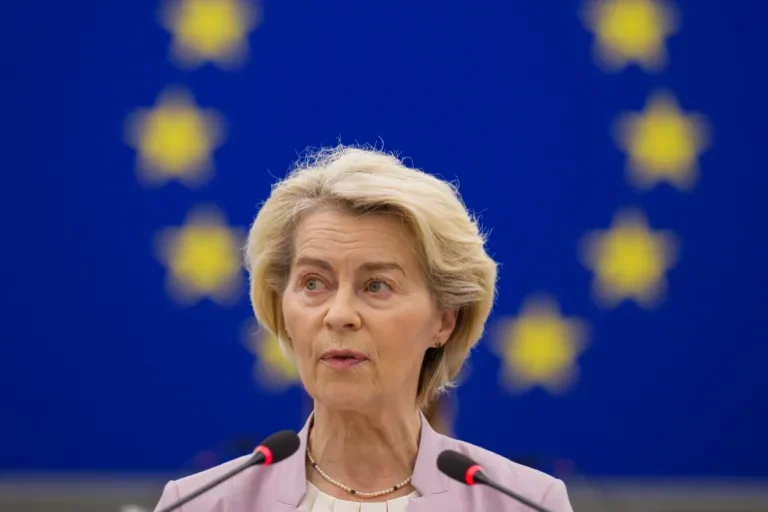The European Union has postponed its planned tariffs on U.S. goods, keeping the door open for a possible trade agreement with Washington. This delay comes ahead of the August 1 deadline set by U.S. President Donald Trump for new duties on European and Mexican exports.
On Sunday, European Commission President Ursula von der Leyen confirmed that the EU would extend its pause on countermeasures. She stressed the EU’s commitment to resolving the issue through dialogue, not confrontation.
“We are continuing negotiations and will use the time available until August 1,” von der Leyen said at a press briefing in Brussels. “Still, we are getting ready in case we need to respond.”
The EU’s move follows Trump’s latest plan to impose a 30 percent tariff on goods from Europe and Mexico starting in August. This announcement has raised concerns about a renewed trade conflict between two of the world’s largest economies.
In March, the EU had announced retaliatory tariffs on U.S. exports worth €26 billion ($30 billion) in reaction to earlier U.S. tariffs on European steel and aluminum. However, the EU later agreed to a 90-day pause after Trump delayed what he called “reciprocal tariffs.” That pause was set to expire at midnight on Monday.
With the deadline looming, EU trade ministers are meeting in Brussels to review the bloc’s next steps. While the EU still aims for a peaceful solution, it is also preparing for potential trade actions if talks fail.
At the same time, White House Economic Adviser Kevin Hassett said the U.S. is not satisfied with the offers on the table. “These tariffs will happen if the president doesn’t see a strong enough deal,” Hassett told a U.S. news outlet on Sunday. “Talks are still going on, so let’s see where things end up.”
Hassett’s comments reflect Washington’s growing pressure on trade partners. Trump has long criticized what he sees as unfair trade practices by the EU. The White House now appears focused on pushing for more balanced trade terms.
The EU, however, remains the U.S.’s top trading partner. In 2024, trade in goods and services between the two regions totaled €1.7 trillion ($2 trillion), according to the EU’s statistics office, Eurostat. This deep economic connection adds weight to both sides’ desire to avoid a trade war.
Analysts say the EU’s decision to delay its response could be a tactical move. It gives negotiators more time while signaling a readiness to act if needed. But they also warn that continued uncertainty could harm businesses on both sides of the Atlantic.
For now, hopes for a deal remain. EU leaders are trying to find common ground with Washington while keeping their own industries protected. With just weeks left before Trump’s deadline, the coming days will be critical in shaping the future of transatlantic trade.







